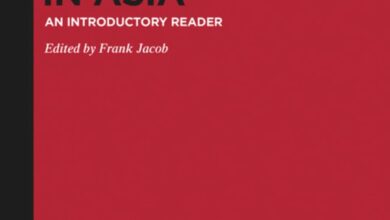The View from Washington – Self-inflicted Wound – Monday 23 August 1971 – Time Magazine
The View from Washington – Self-inflicted Wound
Monday 23 August 1971
Time Magazine
MuktiJuddho e-Archive Collection
THE Soviet-Indian friendship treaty caught the Nixon Administration flatfooted. Secretary of State William Rogers broke the official silence over the pact only to comment weakly: “We hope it may have an effect for the good.” Indian officials in New Delhi and Washington hastened to assure American policymakers that the document was in no way directed against the U.S. But there was no disguising that Washington was wounded—and that the wound was largely self-inflicted. In its overriding preoccupation with India’s two greatest enemies, Pakistan and China, the U.S. simply left New Delhi nowhere to go but Moscow. Said the liberal daily Hindustan Times of New Delhi, which was unhappy about the treaty: “The U.S. has pushed India much further along than where it might have ventured on its own.” –
India has posed special problems for U.S. policymakers ever since Jawaharlal Nehru adopted his policy of mildly Moscow-oriented neutralism. Almost invariably the Indians were more sensitive to Moscow’s reactions than to Washington’s. They relied heavily on receiving forbearance and understanding from the U.S. These qualities were not always forthcoming from U.S. officials who had little use for nonalignment and none at all for New Delhi’s sometimes patronizing and irritating moral preachments.
Since 1951, to be sure, the U.S. has given far more aid to India than has anyone else—nearly $10 billion. But much of it was in the undramatic form of food shipments; the Soviets, who rank fifth among India’s patrons over nearly two decades, got far more mileage with high-visibility projects such as steel mills. At the same time, the U.S. has given an estimated $1 billion in military assistance to Pakistan, a member of the SEATO and CENTO alliances. John Kennedy, it is true, rushed $80 million in war supplies to New Delhi when the Sino-Indian border war erupted in 1962. But, though Washington stopped arms deliveries to both countries when the Pakistan-India war erupted in 1965, the mantle of nonpartisan peacemaker went to the Soviets, who sponsored the truce talks at Tashkent.
Last year Indira Gandhi fired Soviet-lining Foreign Minister Dinesh Singh and replaced him with the genuinely neutralist Swaran Singh (no kin). Said one Indian Foreign Office source: “Under Swaran Singh we evolved a new style toward the U.S. which did nothing to rub America the wrong way.” The U.S., however, rubbed India very much the wrong way when the Pakistani civil war broke out.
After the shooting started last March, the U.S. consul-general in Dacca, Archer K. Blood, asked Washington for a quick, forthright condemnation of the central government’s brutal crackdown. But Joseph S. Farland, the U.S. Ambassador to Pakistan and a Nixon political appointee, argued that the U.S. should do nothing to displease Yahya and thereby drive him into Peking’s arms. In Washington, Farland’s pleas for “quiet diplomacy” won out. The official policy was deliberately ambiguous. There was no condemnation, no reproach, only a promise to stop military sales and hold economic aid “in abeyance” for fiscal year 1972 (the House rejected the Administration’s $132 million Pakistan aid request outright and the Senate is expected to follow suit). In New Delhi, aging Ambassador Kenneth Keating, 71, protested that quiet diplomacy was having no appreciable effect on Yahya and was confusing the Indians. Keating, who is said to be in deep despair, was ignored, and Blood was transferred to State’s personnel office in Washington. Soon word went out that the policy of not being beastly to Yahya had been personally endorsed by President Nixon.
In India’s view, U.S. diplomacy was not quiet but downright deceitful. When Swaran Singh visited Washington last June, he was assured by Administration officials that no U.S. arms would flow to Pakistan. Singh returned home just as the news came out that some arms shipments were being made after all. Washington clumsily explained that there had been an “administrative oversight” involving sales licensed before the embargo was imposed. Last week
State conceded that $4,000,000 in Pakistan-bound arms remains “in the pipeline.” The final straw, Indian officials say, came when Henry Kissinger blew into New Delhi en route to Rawalpindi last month. According to the Indians, Kissinger warned that “if China entered the fray between India and Pakistan, India must not expect any help from the U.S.” When it was learned that Kissinger had gone on to Peking, his caveat took on a conspiratorial cast. Fearful of total diplomatic isolation, the Indians turned to the Soviets.
Considering the shocks his announcement has produced in Japan and now India, it appears that Nixon made a mistake in not taking steps to cushion the impact. According to some observers, he failed to do so not merely because he wanted to preserve secrecy and maximum dramatic effect for his announcement, but also because of his general preoccupation with big-power diplomacy and his rather cavalier attitude toward the Third World.
Chester Bowles, writing in Foreign Affairs, tells this story: “When asked, ‘What is the basis of Soviet foreign policy in Asia?’ a Soviet official recently replied with an eye to America’s pullback from Asia, ‘We simply occupy the empty seats.'” The U.S. should have tried hard for an evenhanded attitude toward both countries when trouble first loomed over the subcontinent last spring. But it did not. The result is that the Soviets are moving into the Indian seat, while the U.S. occupies its perilous and unstable perch in Pakistan.

